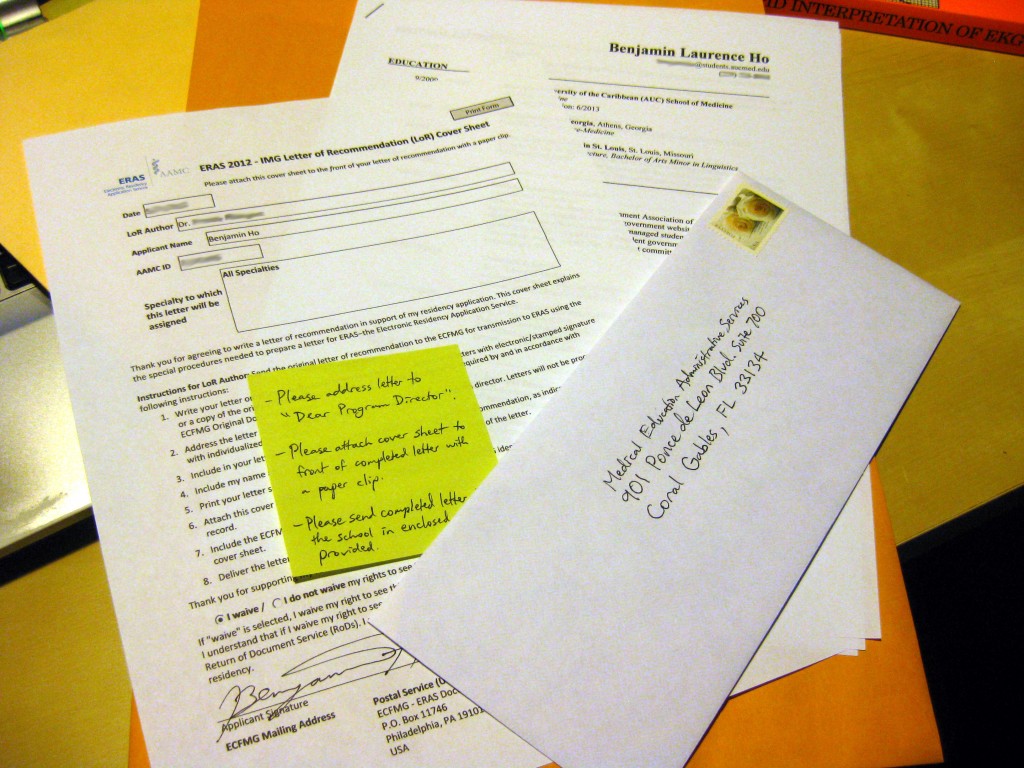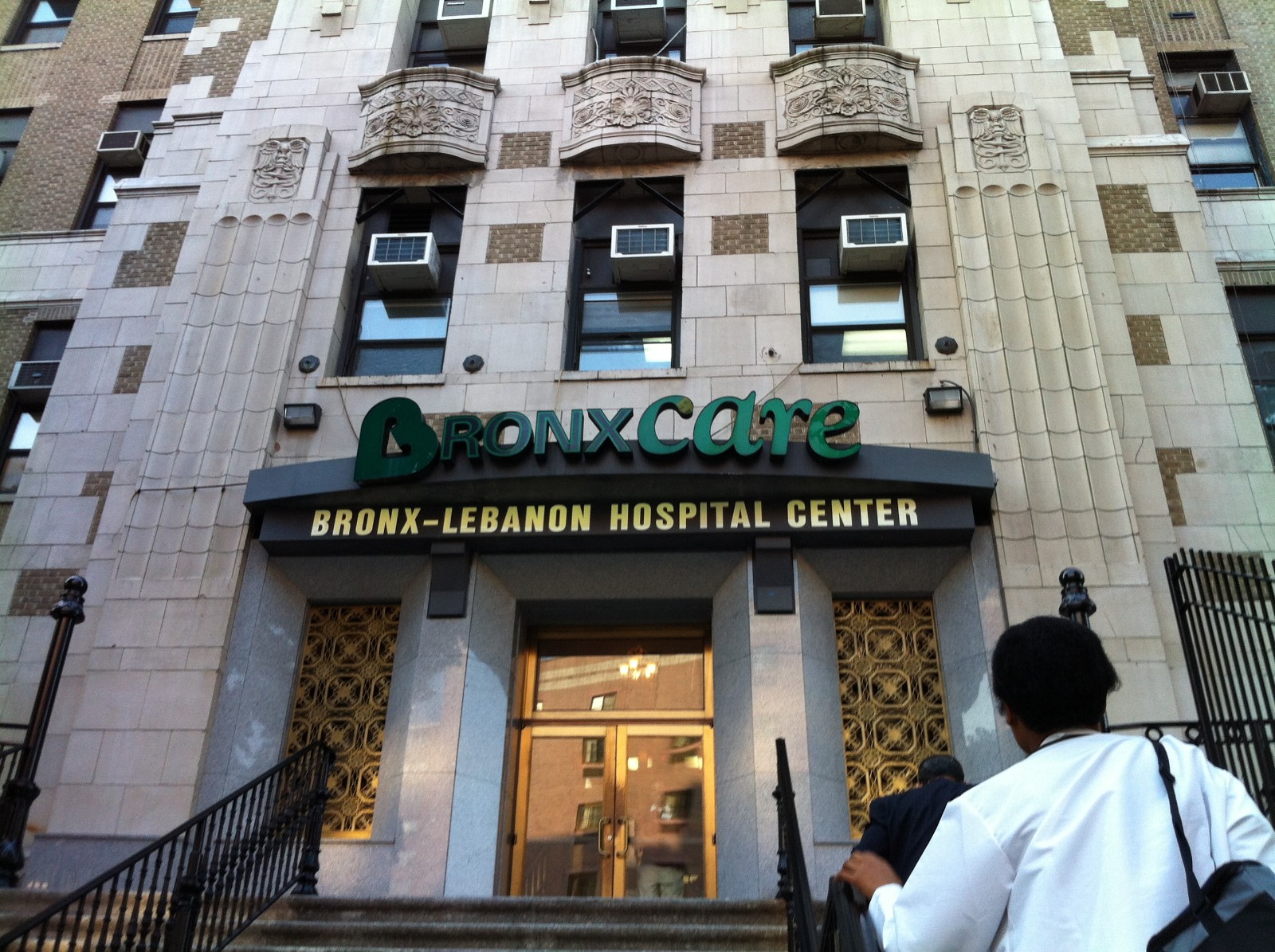How to Get a Letter of Recommendation
During your third and fourth years of medical school, it is very important to establish good relationships with all the attending physicians you work with during your clinical rotations. Not only would it reflect positively on your rotation evaluations, which eventually show up on your MSPE letter, but also it would make it much easier to ask your attending for a letter of recommendation (LoR), which you will need when you apply for residencies. Every attending you work with is a potential LoR writer. Here is my experience with getting LoRs.
How many letters do you need?
Most residency programs that I applied to required 3 letters. Different programs may have different requirements for the LoRs. A few programs say that the letters must have been written within the past one year of applying to residency. Most programs require that there be at least one letter from an attending of the specialty you are applying to, which for me was family medicine. Some programs also require a letter that specifically mentions the specialty you are pursuing in the letter, not just a generic letter that says you’ll be great in any specialty. You can request LoRs from as many attendings as you want, but only a max of 4 can be uploaded onto the Electronic Residency Application Service (ERAS) website, which you use to submit your applications to residency programs. And of those 4, you can choose which 3 you want to send to each program (since most programs only require 3 LoRs, at least for family medicine anyway).
Who should I request LoRs from?
Always request LoRs from attending physicians who you have worked with and who have seen you work. Some attendings feel comfortable writing one after 2 weeks, while others may only feel comfortable after 3. If an attending doesn’t feel comfortable writing you a good one, they will most likely tell you. Do not ask any residents for the LoR, even if you feel you’ve worked with them more. As you move along through your rotations, I would recommend requesting LoRs whenever you deem appropriate. Don’t put it off until the end! If you are not sure what you want to pursue, it’s important to request LoRs from attending physicians of all the specialties you are considering, as well as any “backup” specialties you may have in mind. If you decide to change your mind in terms of which specialty you want later on, you’ll at least have the specific LoRs in hand. It’s also a good idea to have a few generic LoRs as well that don’t specify which field you want to go into, especially if you are planning to apply to multiple specialties.
When should I request an LoR?
ALWAYS request an LoR during your rotation. Any later than that, then your attending may not remember how you performed, or even who you are. I’d recommend requesting an LoR a few days before your last day of the rotation, just in case the attending had some questions for you, or vice versa.
How do LORs get to the residency programs?
Before residency application season, you will have your letter writer send the LoRs to the AUC administrative office in Miami (MEAS). MEAS will keep the letters in their office until application season starts, in which you will request MEAS to upload your LoRs onto the ECFMG site. The LORs are then transferred onto the ERAS website, where they are submitted to residency programs along with the rest of your residency applications. Like I mentioned above, the maximum number of LoRs you can upload onto the ERAS website is 4.
If residency application season has already started, then it is too late to first send the LoR to AUC. Instead, you request your attending to upload their letter electronically and directly onto the ERAS website.
How do I request an LoR from my attending?
I’d recommend putting together an “LoR packet” for your attending to ease their writing process and to give your attending some direction on what to do. Here are some things I would put in the packet:
- ERAS IMG Letter of Recommendation Cover Sheet — There is a template for this that you can find online in PDF form. Fill out the boxes for the date, your letter writer’s name, your name, your AAMC#, and the specialty in which you want to assign the letter. If you are not sure what specialty you want to pursue yet, or just want a generic all-purpose letter that isn’t specific for any specialty, then write “all specialties” in that box. Indicate whether or not you waive the right to see the letter. If you waive it, you won’t be able to read what your letter writer wrote on the LoR. You should always waive it, as it looks better on your part. Sign the cover sheet. There is also instructions for the letter writer on the cover sheet that tell them to send the finished letter to ECFMG, but if application season hasn’t started yet, tell your attending to ignore those instructions and instead send the letter to AUC.
- Envelope addressed to AUC with stamp — If application season hasn’t started yet, you can’t have your LoRs uploaded onto ERAS yet, so you’ll need your letter writer to send the completed LoR to AUC first, who will hold onto them until application season begins. Have an empty envelope ready with a stamp, addressed to here:
Medical Education Administrative Services
901 Ponce de Leon Blvd., Suite 700
Coral Gables, FL 33134
- Your Curriculum Vitae (CV) — Include this so that your attending can better understand your credentials and academic and personal history. This will help them write your recommendation better. If you have a personal statement, you can include that too in the packet.
- Instructions Sheet — I like to include a short instructions sheet, or sometimes even just a post-it note with a few basic instructions on there to guide my letter writer. On the instructions sheet, remind your attending to:
- Please address letter to “Dear Program Director.”
- Please attach cover sheet to front of completed letter with a paper clip.
- Please send completed letter to the administrative office of AUC (Medical Education Administrative Services) in the envelope provided.
- Please sign in blue ink.
- Please write on professional letterhead, either from the hospital, institution, or the letter writer’s personal letterhead. This is to ensure program directors that the letter is from a reputable source.
Put the cover sheet, envelope, CV, and instructions sheet into a professional-looking folder (i.e. nice black folder you can get at office depot) or packet. If your attending agrees to write you an LoR, you can go over the content of the LoR packet with him/her.

How do I follow up on the LoR?
Make sure your attending knows how to contact you in case he/she has any additional questions or concerns, and vice versa. After your rotation, send your attending a thank you card or email, thanking them for the awesome experience during the rotation and for offering to write you a letter. After a few weeks or months, you can contact MEAS to confirm if they have received the completed LoR from your attending.
AUC will help you collect all your LoRs until residency application season begins. In the meantime, continue doing well on your rotations and collect as many LoRs as you need. You will eventually figure out which specialty(or specialties) you want to apply to, and decide which 4 of your LoRs you want AUC to upload onto the ECFMG/ERAS Support Services website.
Best of luck!














Hi Benji,
Should I also ask for letters of recommendation from basic sciences professors?
Thanks!
No. This stuff applies to clinical students. Worry about LoR from attending physicians, not residents or interns, and only when you get to clinical rotations in 3rd and 4th year. Depending on your cohort (month you started @ AUC) you will leave the island when you pass your comprehensive exam 5th semester. Start mapping out when you will finish basic sciences, because after that final day of classes you will have 1 semester (4mo) to take step 1 and you can’t apply for a clinical rotation until you get your score (3wks after the test date). Figure out where (what hospital/city/cities) you want to do your clinical rotations. My advice is to figure it out over one of your breaks, so you don’t feel like you’re blowing off studying for something so far down the line. It’s not easy to plan either, a lot of the hospital/clinical sites have specific start dates. It may not be as easy to get a rotation at a desired spot. Taking step early will help you in the long run, but the USMLE score is more important.
Worry about dates; when you finish basic sci, when you take step, and when you get your score. Once you get your passing score, you email the registrar the results and your preferred clinical sites. They will tell you what’s available. You may be able to sign up ahead of schedule at those clinical orientations/fairs. Good luck.
Hi KC, I don’t recommend LORs from Basic Science professors. Programs won’t care about those. Also professors won’t be able to know how your clinical skills and bedside manners are, because they know you just from a classroom setting. Your are only allowed a limited number of LORs on your residency application (3). Save these for LORs from attending physicians who know how you work, and who can write a meaningful letter.
Benji
FYI … It appears you can upload more than 4 LOR’s to ERAS … I am up to 5 already …All under FM.
Yeah, but programs aren’t going to want to read 5 LORs. Most peograms only require 3, and they’ll likely only want to read three. Choose the three strongest or most relevant ones.
Hi Benji, I’m a third year student at AUC and about to start my rotations in NY in June. So far, I haven’t been scheduled for a family medicine rotation because it can’t be scheduled by the coordinators with the particular hospitals I was assigned to. I was told by the the coordinators that I can try to ask the hospitals I’m rotating at to see if I can do a family medicine elective rotation there, but that’s not guaranteed. This means I may not be able to do a family medicine rotation before applying for residency or get an LOR from a fam med attending. Do you think this will significantly hurt my chances of getting a fam med interview? I’ve looked at 2 programs I want to apply to and it looks like they don’t require a fam med LOR in particular. Thank you!
It’s not absolutely necessary to have an LOR from an FM physician, but it certainly helps. If you can in anyway find an FM physician to write you a letter, that would be helpful. Also, programs may question how do you know you want to do family medicine if you have not even rotated in it yet.